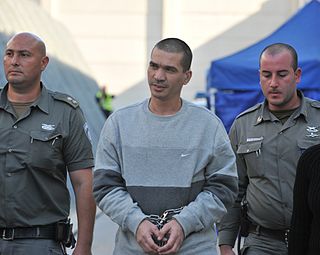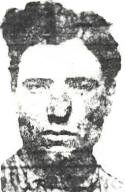Related Research Articles

The United States Senate Special Committee to Investigate Crime in Interstate Commerce was a special committee of the United States Senate which existed from 1950 to 1951 and which investigated organized crime which crossed state borders in the United States. The committee became popularly known as the Kefauver Committee because of its chairman, Senator Estes Kefauver. The term capo di tutti capi was introduced to the U.S. public by the Kefauver Commission.
Kkangpae (Korean: 깡패) is a romanization of the Korean word that is commonly translated to 'gangster' or 'thug'. The term is commonly used to refer to members of unorganized street gangs. By contrast, members of organized crime gangs are called geondal (건달) or jopok.
In the late 19th and early 20th centuries, African-American organized crime emerged following the first and second large-scale migration of African-Americans from the South to major cities of the Northeast, Midwest, and later the West Coast. In many of these newly established communities and neighborhoods, criminal activities such as illegal gambling, speakeasies and bootlegging were seen in the post-World War I and Prohibition eras. Although the majority of these businesses in African-American neighborhoods were operated by African Americans, it is often unclear the extent to which these operations were run independently of the larger criminal organizations of the time.
Albanian mafia or Albanian organized crime are the general terms used for criminal organizations based in Albania or composed of ethnic Albanians. Albanian organized crime is active in Europe, North America, South America, and various other parts of the world including the Middle East and Asia. The Albanian Mafia participates in a diverse range of criminal enterprises including trafficking in drugs, arms, and humans. Thanks to their close ties with the 'Ndrangheta of Calabria, they control a large part of the billion dollar wholesale cocaine market in Europe and appear to be the primary distributors of cocaine in various European drug hubs including London. Albanian organized crime is characterized by diversified criminal enterprises which, in their complexity, demonstrate a very high criminal capacity. In Albania, there are over 15 mafia families that control organized crime.
Peter DeFeo, also known as "Philie Aquilino", was a New York mobster who became a caporegime with the Genovese crime family.
Frank DeLuca was an Italian-American mobster who helped control the smuggling and distribution of narcotics in Kansas City, Missouri, for almost four decades.
Francesco "Frank" Zito was a Sicilian-American mobster who controlled criminal activities in Central and Southern Illinois for over twenty years, providing protection from law enforcement and rival competitors from his base of operations in Springfield, Illinois. It can be debated if Zito was head of his own crime family or, he may have been a powerful capo of the Chicago Outfit with his own crew based in Central Illinois. This information is unclear and it seems as though the files on Mr. Zito lack the investigatory evidence that he was in fact the "Godfather of the Prairie." In any case, Zito was a very powerful force in Springfield and the Central and Southern areas of Illinois.

Alfred Polizzi was a Sicilian emigrant to the United States who was boss of the Cleveland crime family in Cleveland, Ohio, from 1935 to 1945. He stabilized the Cleveland crime family after a period of revenge killings, and was one of the most influential mobsters in the United States. He retired to Florida in 1945, where he was involved in the construction industry. He used several aliases, including "Big Al" and Albert Allen.
Joseph "JS" Sica was a New Jersey mobster involved in armed robbery, murder for hire, extortion, and narcotics distribution. Sica mentored many West Coast mobsters, including Mike Rizzitello and Anthony "the Animal" Fiato. Christopher "Chris" Petti was Sica's longtime partner in the Los Angeles and San Diego rackets. Sica's brothers Alfred, Angelo, and Frank were also associates of Sica's.
Danny Stanton was a Chicago mobster and labor union racketeer for the Chicago Outfit during Prohibition. An early leader of the Sheldon Gang, he later headed members of the Ragen's Colts on behalf of Al Capone in support of the Druggan-Lake Gang during the bootleg wars of the mid-1920s.

William Vito "Black Bill" Tocco was an Italian-American mobster from Grosse Pointe Park, Michigan and a founding member of the Detroit Partnership of La Cosa Nostra.
The American Mafia, commonly referred to in North America as the Italian American Mafia, the Mafia, or the Mob, is a highly organized Italian American criminal society and organized crime group. The organization is often referred to by its members as Cosa Nostra and by the American government as La Cosa Nostra (LCN). The organization's name is derived from the original Mafia or Cosa Nostra, the Sicilian Mafia, with "American Mafia" originally referring simply to Mafia groups from Sicily operating in the United States, as the organization initially emerged as an offshoot of the Sicilian Mafia formed by Italian immigrants in the United States. However, the organization gradually evolved into a separate entity partially independent of the original Mafia in Sicily, and it eventually encompassed or absorbed other Italian immigrant and Italian American gangsters and Italian American crime groups active in the United States and Canada that were not of Sicilian origin. In North America, it is often colloquially referred to as the Italian Mafia or Italian Mob, though these terms may also apply to the separate yet related Sicilian Mafia or other organized crime groups in Italy or ethnic Italian crime groups in other countries.

The Abergil Organization is an Israeli organized crime syndicate that has been active since the late 20th and early 21st centuries. The organization was founded by brothers Yaakov and Avi Abergil in the city of Ramat Gan, Israel, in the 1990s. The Abergil Organization is involved in a wide range of criminal activities, including drug trafficking, money laundering, and extortion.
The Israeli mafia are the organized crime groups operating in Israel or consisting of Israeli members. There are 16 crime families operating in Israel, five major groups active on the national level and 11 smaller organizations. There are six Jewish crime families active and three Arab crime families. Many heads and members of the crime groups have either been killed or are in prison.

The Los Angeles crime family, also known as the L.A. Mafia or the Southern California crime family, is an Italian-American organized crime syndicate based in Los Angeles as part of the larger Italian-American Mafia. Since its inception in the early 20th century, it has spread throughout Southern California. Like most Mafia families in the United States, the Los Angeles crime family gained power bootlegging alcohol during the Prohibition era. The L.A. family reached its peak strength in the 1940s and early 1950s under Jack Dragna, although the family was never larger than the New York or Chicago families. The Los Angeles crime family itself has been on a gradual decline, with the Chicago Outfit representing them on The Commission since the death of boss Jack Dragna in 1956.
The President's Commission on Organized Crime was a United States governmental body that existed during the Ronald Reagan administration. It was established by Executive Order 12435 in 1984. Its chairman was Judge Irving Kaufman. It issued a final report in 1986, when it was disestablished. The Commission published seven volumes of hearings, including ones on money laundering, Asian organized crime, cocaine trafficking, heroin trafficking, labor-management racketeering, and gambling. It also published three interim reports on money laundering, labor racketeering, and drug trafficking.
Joseph DeLuca was an Italian-American mobster who controlled the smuggling and distribution of narcotics with his brother Frank DeLuca in Kansas City, Missouri for almost four decades.
Frank Milano was a Calabrian emigrant to the United States who was boss of the Cleveland crime family in Cleveland, Ohio, from 1930 to 1935. He fled to Mexico, and in the early 1960s returned to the United States where he took up residence in Los Angeles, California. He became a criminal associate of the Cohen crime family and the Luciano crime family.
References
- ↑ "Investigation of Organized Crime in Interstate Commerce: Hearings Before the Special Committee to Investigate Organized Crime in Interstate Commerce United States Senate". NevadaObserver.com. Archived from the original on 2006-11-16. Retrieved 2007-04-02.
{{cite web}}: CS1 maint: bot: original URL status unknown (link)